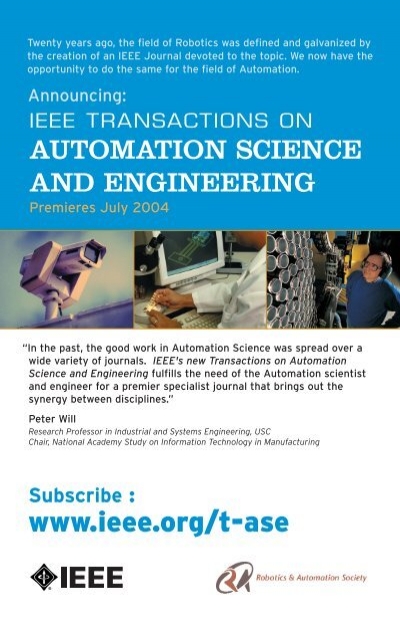基于在线元启发式调谐的神经自适应MPC燃料电池混合动力汽车动力管理
IF 6.4
2区 计算机科学
Q1 AUTOMATION & CONTROL SYSTEMS
IEEE Transactions on Automation Science and Engineering
Pub Date : 2025-01-27
DOI:10.1109/TASE.2025.3534402
引用次数: 0
摘要
在本文中,我们提出了一种用于电源管理应用的高级控制框架,称为神经自适应模型预测控制(NA-MPC),旨在提供多个能源之间的最优功率分配,执行最优控制策略的多目标在线自适应,并确保以低计算需求快速实时执行。NA-MPC增强了一般MPC问题,具有三个关键特征:1)一种在线元启发式调整策略,自适应MPC代价函数权值,以同时达到多个并发控制目标;2)通过神经仿真,将MPC控制策略替换为等效的神经MPC控制器,具有通用逼近保证,保证了实时可行性;3)采用神经黑箱MPC预测模型,该模型仅通过假设未知对象的噪声干扰输入输出测量来识别。NA-MPC的通用配方和多功能性使其潜在地适用于多种电源管理场景;在这项工作中,我们将NA-MPC应用于燃料电池混合动力汽车(FCHEVs)的电源管理案例研究,这是一个在可持续交通框架内日益受到关注的话题,但仍然缺乏新颖有效的策略。通过数值模拟对NA-MPC的有效性进行了全面评估,证明了其实时同时实现多个控制目标的能力;此外,NA-MPC始终优于最突出的最先进的HEV电源管理策略。从业者注意:本文的目的是介绍一种先进的在线自适应最优控制策略,称为NA-MPC,并将其作为fhev的一种新型电源管理策略,以解决现有最先进策略的几个技术缺陷。具体来说,后者通常无法在准确的功率跟踪和供电消耗之间进行有效的权衡,证明只是次优控制动作。这些策略的适应能力也非常有限,要么离线调整,要么采用简单的非最优适应策略。此外,文献中提出的基本最优控制策略很少,很少关注其实时可行性。相比之下,我们的NA-MPC策略提供了最优的功率分配,有效地实现了多个并发控制目标,并且由于其神经嵌入,在计算资源有限的硬件上实时可行且易于实现。此外,NA-MPC的通用配方和多功能性使其能够在各种不同的电源管理场景中得到潜在的应用。本文章由计算机程序翻译,如有差异,请以英文原文为准。
Neural Adaptive MPC With Online Metaheuristic Tuning for Power Management in Fuel Cell Hybrid Electric Vehicles
In this paper, we present an advanced control framework for power management applications, named Neural Adaptive Model Predictive Control (NA-MPC), designed to provide an optimal power allocation among multiple energy sources, perform a multi-objective online adaptation of the optimal control policy, and ensure a fast real-time execution with low computational demand. NA-MPC augments general MPC problems with three key features: 1) an online metaheuristic tuning strategy adapts the MPC cost function weights, to attain multiple concurrent control objectives at once; 2) through neural emulation, the MPC control policy is replaced by an equivalent neural MPC controller, exhibiting universal approximation guarantees and ensuring real-time feasibility; 3) a neural black-box MPC prediction model is employed, identified only via noise-corrupted input-output measurements from the plant, which is assumed to be unknown. The general formulation and versatility of NA-MPC make it potentially applicable to several power management scenarios; in this work, we apply NA-MPC to the case study of power management in fuel cell hybrid electric vehicles (FCHEVs), a topic of growing interest within the frame of sustainable transportation, for which novel and efficient strategies are still lacking. The effectiveness of NA-MPC is thoroughly assessed via numerical simulations, demonstrating its capability to optimally attain multiple control objectives concurrently in real time; moreover, NA-MPC consistently outperforms the most prominent state-of-the-art HEV power management strategies. Note to Practitioners—The aim of this paper is to introduce an advanced online-adaptive optimal control strategy, named NA-MPC, and employ it as a novel power management strategy for FCHEVs, with the purpose of addressing several technical shortcomings of the existing state-of-the-art strategies. Specifically, the latter typically fail in performing effective trade-offs between accurate power tracking and supply consumption, proving a merely suboptimal control action. Such strategies have also very limited adaptation capabilities, being either offline-tuned or employing simple non-optimal adaptation policies. Moreover, only few basic optimal control strategies are proposed in the literature, with little focus on their real-time feasibility. By contrast, our NA-MPC strategy provides an optimal power allocation, effectively attains multiple concurrent control objectives, and, thanks to its neural embedding, is real-time feasible and easily implementable on hardware with limited computational resources. Furthermore, the general formulation and versatility of NA-MPC enable its potential application across a wide variety of different power management scenarios.
求助全文
通过发布文献求助,成功后即可免费获取论文全文。
去求助
来源期刊

IEEE Transactions on Automation Science and Engineering
工程技术-自动化与控制系统
CiteScore
12.50
自引率
14.30%
发文量
404
审稿时长
3.0 months
期刊介绍:
The IEEE Transactions on Automation Science and Engineering (T-ASE) publishes fundamental papers on Automation, emphasizing scientific results that advance efficiency, quality, productivity, and reliability. T-ASE encourages interdisciplinary approaches from computer science, control systems, electrical engineering, mathematics, mechanical engineering, operations research, and other fields. T-ASE welcomes results relevant to industries such as agriculture, biotechnology, healthcare, home automation, maintenance, manufacturing, pharmaceuticals, retail, security, service, supply chains, and transportation. T-ASE addresses a research community willing to integrate knowledge across disciplines and industries. For this purpose, each paper includes a Note to Practitioners that summarizes how its results can be applied or how they might be extended to apply in practice.
 求助内容:
求助内容: 应助结果提醒方式:
应助结果提醒方式:


